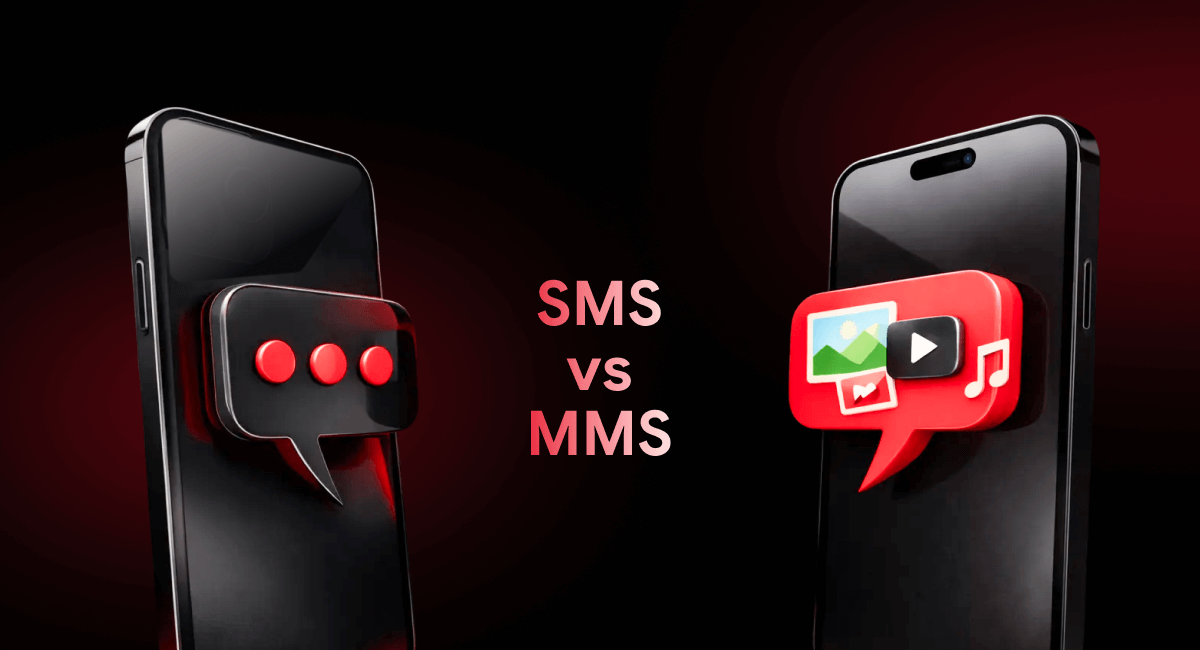Marketing Strategies for Small Business
As small businesses navigate the competitive world of commerce, they face unique challenges in marketing. Limited budgets and smaller teams often put them at a disadvantage compared to larger companies. But the good news...

As small businesses navigate the competitive world of commerce, they face unique challenges in marketing. Limited budgets and smaller teams often put them at a disadvantage compared to larger companies. But the good news is that with the right strategies, small businesses can turn these challenges into opportunities and thrive.
A well-crafted marketing strategy is essential for growth. It helps small businesses reach new customers, retain existing ones, and build a strong brand identity. This blog will provide practical, cost-effective marketing strategies tailored to the needs of small businesses.
Marketing Strategies for Small Business
The best marketing strategies for small business focus on going digital, building strong customer relationships, and growing an online presence.
Understanding Your Market
The foundation of any successful marketing strategy lies in understanding your audience. Market research isn’t just about knowing who your customers might be—it’s about deeply understanding their needs, behaviors, and preferences.
The Role of Market Research
Market research guides businesses through changing consumer trends and competitive environments. It provides insights into customer needs, buying behavior, and expectations, ensuring that marketing efforts are targeted and effective.
Identifying Your Target Audience
- Customer Demographics: Collect data on age, gender, income, education, and occupation. This helps create customer profiles for tailored campaigns.
- Preferences and Needs: Understand passions, problems, and priorities to craft relevant messages.
- Buying Behaviors: Learn what influences purchase decisions—price, quality, convenience, or brand reputation.
Tailoring Marketing Efforts
Use insights from research to highlight what matters most to your customers. For example, if they value sustainability, showcase eco-friendly practices. If they prioritize convenience, emphasize quick delivery or easy access.
Digital Marketing Strategies
In today’s fast-paced business landscape, digital marketing is a must for small businesses. It provides affordable tools to reach wider audiences and engage customers more closely.
Embracing Search Engine Optimization (SEO)
- Optimizing Website Content: Use high-quality, keyword-rich content that resonates with both your audience and search engines.
- Building Backlinks: Collaborate with influencers, guest blog, and engage in community forums to increase authority.
- Mobile Optimization: Ensure your website is mobile-friendly since many customers search on their phones.
Leveraging Social Media Marketing
- Creating Engaging Content: Share blogs, videos, reels, polls, and behind-the-scenes posts. Focus on value and interaction, not just promotion.
- Engaging With Customers: Respond to comments, run surveys, and build a community around your brand.
- Choosing the Right Platforms: Pick platforms based on audience demographics—LinkedIn for B2B, Instagram or TikTok for younger audiences.
Effective Email & SMS Marketing
- Personalized Campaigns: Segment audiences to send relevant offers.
- Consistent Value: Share tips, updates, or offers that matter to your customers.
- Using Easify: Automate SMS marketing campaigns and feedback surveys for higher engagement and faster responses.
Ready to grow your small business? Try Easify Today for smarter SMS marketing.
Integrating Digital Channels
Each digital strategy supports the other. SEO brings visitors, social media builds engagement, and email/SMS nurtures relationships for conversions.
Traditional Marketing Techniques
While digital marketing often takes the spotlight, traditional methods still play an important role.
Print Advertising
- Targeted Reach: Ads in local newspapers or magazines reach specific communities.
- Tangible Impact: Flyers or brochures create lasting impressions.
- Integration Tip: Always include website or social handles to connect offline with online.
Direct Mail
- Personalized Engagement: Send postcards, offers, or catalogs tailored to customer needs.
- Tracking Responses: Use discount codes or QR links to measure effectiveness.
Networking
- Local & Industry Events: Attend trade shows or community events to connect with customers and partners.
- Digital Follow-up: Connect with new contacts on LinkedIn or via email for long-term engagement.
Leveraging Local SEO
Local SEO helps small businesses attract nearby customers searching for their services.
Actionable Steps
- Google My Business: Keep your profile updated with accurate information, photos, and offers.
- Customer Reviews: Encourage and respond to reviews to boost visibility and trust.
- Localized Content: Create location-specific website pages.
- Consistent NAP: Ensure name, address, and phone number match across all platforms.
- Mobile Optimization: A responsive website is critical for local searches.
Why Local SEO Matters
It allows small businesses to compete with larger brands by focusing on their immediate community—where customers are more likely to convert.
Content Marketing & Brand Storytelling
Content marketing isn’t just about selling—it’s about creating value and building a story that resonates.
The Essence of Content Marketing
Blogs, videos, infographics, and podcasts help attract and engage audiences. The goal is to educate, inspire, or solve problems.
Crafting Your Brand Story
- Core Values: Define what your business stands for beyond profit.
- Audience Connection: Create a story that reflects your customers’ aspirations and challenges.
- Consistency: Maintain the same voice and story across platforms.
Benefits
- Emotional Connection: Build loyalty through relatable storytelling.
- Differentiation: Stand out from competitors with a unique story.
- Customer Loyalty: Emotional engagement leads to stronger retention.
Measuring and Analyzing Results
Marketing only works if you measure what’s effective.
Tools
- Google Analytics: Track website traffic, behavior, and conversions.
- Social Media Analytics: Review engagement, demographics, and post performance.
- Email/SMS Analytics: Monitor open rates, click-through rates, and responses.
Methods
- Clear KPIs: Set measurable goals like traffic growth, sales, or leads.
- Regular Reviews: Adjust strategies based on performance.
- A/B Testing: Compare variations of campaigns to see what works best.
How Easify Helps Small Businesses Succeed
- Automates SMS campaigns for customer engagement.
- Simplifies sending surveys and collecting feedback.
- Provides affordable, easy-to-use solutions for small businesses.
Conclusion
Effective marketing for small businesses is about combining smart strategies, building customer relationships, and adapting to changing markets. By leveraging both digital and traditional approaches, focusing on local SEO, and telling a strong brand story, small businesses can compete with larger companies and grow sustainably.

A text message sender gives your outreach the visibility most channels fail to deliver. Your customers often engage with text messages. On the other hand, emails and outbound calls are usually ignored. If your outreach depends on the latter-mentioned channels, you are operating with lower visibility than necessary. Whether you are running a dental practice, a retail store, a real estate or insurance agency, or a five-person marketing team, the way you communicate with customers matters. Text messaging is not just faster. It gets results. Let’s break down everything you need to know. What is a Text Message Sender? A text message sender is software that lets businesses send SMS to their customers at scale. With this software, you manage contacts, send texts, and track results from one centralized platform. Here is how it works: you upload a list of contacts (or build one through opt-ins), write your message, personalize it with the customer’s name or other details, and then either send it immediately or schedule it for later. The platform...

You’re here because you need to text your customers, but you’re not sure which option to pick. SMS vs MMS isn’t just tech jargon. It’s a real decision that affects your budget, engagement rates, and whether people actually read what you send. As a business owner trying to reach customers, you’re probably wondering: should I send a text message or one with a picture? And does it actually matter? Well, yes. It does. SMS and MMS aren’t the same thing. They cost different amounts. They work differently. And if you pick the wrong one for the wrong situation, you’re either wasting money or missing out on engagement. Let’s fix that with this guide. Key Takeaways (TL;DR) Here’s what you need to know right now: SMS is plain text. Fast, cheap, works everywhere. Perfect for reminders, alerts, and quick updates. MMS includes images, videos, and other media. Costs more but gets way more engagement. Great for promotions and anything visual. When to use SMS: Appointment confirmations, delivery updates, verification codes, time-sensitive alerts. When to use MMS: Product launches Event...

Navigating the Complex World of Digital Communication with Easify In the ever-evolving landscape of digital marketing, the thin line between effective communication and spam is crucial. Easify’s AI Compose tool emerges as a key player, ensuring that your SMS and email campaigns reach their intended audience without being flagged as spam. This tool stands out by understanding the nuances of digital messaging, ensuring compliance, and maintaining the delicate balance between persuasive marketing and intrusive spam. Understanding Spam: What Makes Your Communication Unwanted? Spam is often perceived as unsolicited, irrelevant, or overly frequent communication that clutters inboxes and irritates recipients. It’s not just about the content but also about the context and consent. Recognizing these factors is the first step in ensuring your messages are welcomed rather than dismissed as spam. This part of the blog will delve into the characteristics of spam and how to differentiate your communications effectively. The...